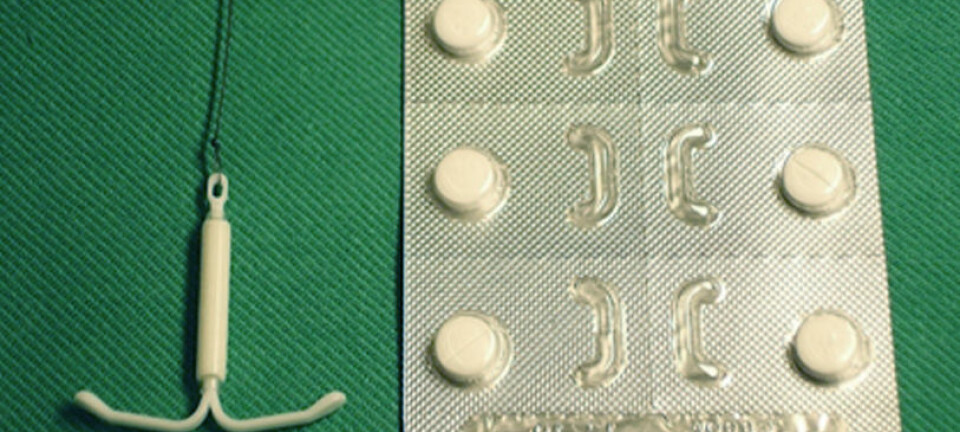
Marriage reduces testosterone in men
A new study shows that marriage can explain a drop in men’s testosterone level. The biological reasons are unknown but scientists speculate that the answer lies in our evolutionary history.
Men’s testosterone level changes when they get married, shows new research.
The male sex hormone, testosterone, controls the formation of muscles and bones, hair and voice. It also influences libido, virility, and has a big impact on personality.
“Testosterone influences everything that makes a man, a man,” says Anna-Maria Andersson, research leader at the hormone laboratory at Rigs Hospital Clinic for Growth and Reproduction, Denmark.
Andersson is co-author of the new study, published in the journal Psychoneuroendocrinology.
Our lifestyle influences our hormones
The study is the result of a ten-year-long study of 1,113 Danish men from the so-called MONICA cohort. The first blood samples were taken between 1982 and 1984, from men between the age of 30 and 60 years. Blood samples were taken again ten years later.
Testosterone falls as we age, but when the scientists adjusted for age and life style factors such as smoking and weight, which also influence testosterone level, they discovered that men who had married in that period experienced the biggest drop in testosterone.
They also noticed that men who had separated from their partners during this time had the lowest drop in testosterone, while those who had not changed their marital status had a drop in testosterone that fell somewhere in between married and divorced men.
“It’s a good picture of how much our lives can effect our hormones. The body adapts itself to the situation that we find ourselves in,” says Andersson.
Read More: VIDEO: Hormone may offer new approach to diabetes
The chicken or the egg?
It is not the first time that a study has shown lower testosterone levels among married men. But the connection has always been a “chicken and egg” scenario: which one came first?
Are men with low testosterone more likely to get married, or is it the act of getting married that changes hormone levels?
The new study may favour the second explanation.
“It’s an interesting study and the results fit well with what we expect,” says Tina Kold Jensen, professor of environmental medicine at the University of Southern Denmark. Jensen was not involved in the new study.
“It’s logical that men don’t need to have the same level of testosterone when they enter into a long-term relationship. They don’t need to have the same drive,” she says.
Read More: Scientists clash: Is there an exercise hormone?
These levels have no health impact
If testosterone is too low then it can impact negatively on your health. For example it is associated with reduced sperm production and sex drive, and an increased risk of impotence and hair loss. But too much testosterone can also be harmful. It can make you aggressive and increases the chance of blood clots.
But the changes in testosterone observed in the new study are not so drastic and are unlikely to have health consequences, say Andersson.
“We can’t say with certainty from this study, but it doesn’t look like there’s a problem. The body has mechanisms to compensate for critically low levels of testosterone, but married men don’t compensate for it,” she says.
The body compensates by releasing more of the so-called luteinizing hormone (LH), which regulates testosterone. But married men did not produce more of this hormone.
Read More: Testicular cancer not affected by the mother’s sex hormones
“Love hormone” may be to blame
While there are no concrete theories to explain the low testosterone in married men, Andersson has some ideas.
One is that another hormone—oxytocin—plays a role. It’s often known as the “love hormone” as it is released when you have prolonged eye contact or romantic physical contact.
Oxytocin often has the opposite effect of testosterone on our behaviour. While testosterone is associated with aggressive and confrontational behaviour, oxytocin in associated with feelings of trust, sociability, and romantic coupling.
Read More: Contraception influences sexual desire in committed relationships
An evolutionary advantage
The idea is that married men release more oxytocin than unmarried men, and this influences their testosterone levels.
“It’s speculation and we haven’t been able to measure the oxytocin level in this study, but it makes sense that it plays a role when you consider it from an evolutionary prospective,” says Andersson.
“It’s of course necessary for men to be able to defend their wife and any children. You still need testosterone. But it’s also necessary to modify your behaviour towards them. It’s important that you bond with your family and create a tight social bond,” she says.
Read More: Men in rehab use anabolic steroids
Female hormones play a role
Another hypothesis is that married men’s testosterone levels change because they are exposed to female pheromones.
“It’s unknown territory and we don’t know much about the effect of pheromones. But women’s periods do tend to sync when they live together. If that’s the case, then pheromones could also effect men’s hormones. That would be very interesting if individuals actually influence other people’s hormones, and create a sort of hormone-war,” says Andersson.
These hypotheses are speculation but what advice does Andersson have for married men?
“It’s nothing more than an interesting observation of our biology. And married men shouldn’t worry. It's most likely a normal physiological adaptation and there’s no need to start taking anabolic steroids to boost testosterone levels,” she says.
---------------
Read the Danish version of this article on Videnskab.dk
Translated by: Catherine Jex











